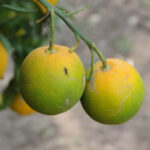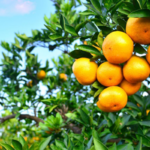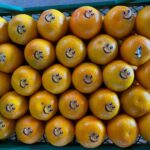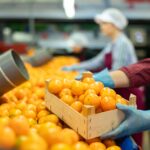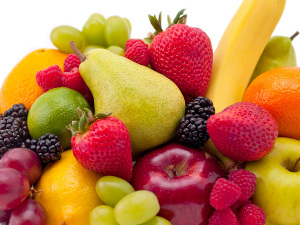EU announces ban on South African citrus

The European Union confirmed it will be banning most citrus arrivals from South Africa, a nation that represents around a third of the region's imports of the fruit.
The decision follows a season filled with tension over citrus black spot, but at the moment it carries mostly symbolic significance. The measure applies specifically to the 2012-13 growing season, which has largely come to a close in the African nation.
"Emergency measures proposed by the Commission to tackle citrus fruit from South Africa contaminated with citrus black spot, a harmful fungus not native to Europe, were today endorsed by Member State experts meeting at the Standing Committee on Plant Health (SCPH)," the European Commission said today.
Of 600,000 tons (MT) of South African citrus sent to the EU this season, a reported 36 consignments were found to contain citrus black spot. The European Union had previously set the detection limit at five.
The commission's delay in implementing a ban sparked intense debate from producers in Spain and Italy. The South African industry argued, however, that no real contamination risk existed from properly handled fresh fruit.
The EU statement argued that introduction of the disease, caused by fungus Guignardia citricarpa, would pose a serious threat to European producers and compromise the local citrus industry.
"For that reason, it is necessary to further restrict the import of citrus fruit from South Africa. The new EU measures apply for citrus fruit produced during the 2012-2013 growing season, allowing only the entrance into the EU of citrus fruit originating in South African pest free areas for citrus black spot," the commission said.
The commission did not make immediately clear what measures it would implement on South African citrus for the coming season.
If the ban were to extend into next season, it could have a negative effect on employment, said Annette Steyn, South African shadow minister of agriculture.
"Currently, the citrus industry employs 40 000 permanent workers and an additional 40 000 seasonal workers. If this ban is not lifted urgently, 80 000 jobs could be affected and the prohibition on SA products to the EU could cost the country over R13 billion [US$1.27 billion] per annum," Steyn said in a public statement.
She urged Minister of Agriculture Tina Joemat-Petersson to act quickly to reassure the European Union that the proper control measures were being implemented.
Steyn highlighted Joemat-Petersson's perceived lack of action regarding plant and animal health safety measures for both meat and citrus exports.
"Clearly the Minster has failed to prioritise animal health and pest control measures and this will cost South Africa R15 billion [US$1.47 billion] – as a result of both meat and citrus export bans," she said.
"The DA urges government to do everything possible to reassure investors that pest control measures will be implemented without delay. Jobs, families and ultimately breadwinners are depending on this sector for their livelihoods."
Photo: www.shutterstock.com
Related stories: Australian industry backs South African citrus in Europe
South Africa imposes restrictions on citrus shipments to EU
South African citrus waits in limbo on EU market


















